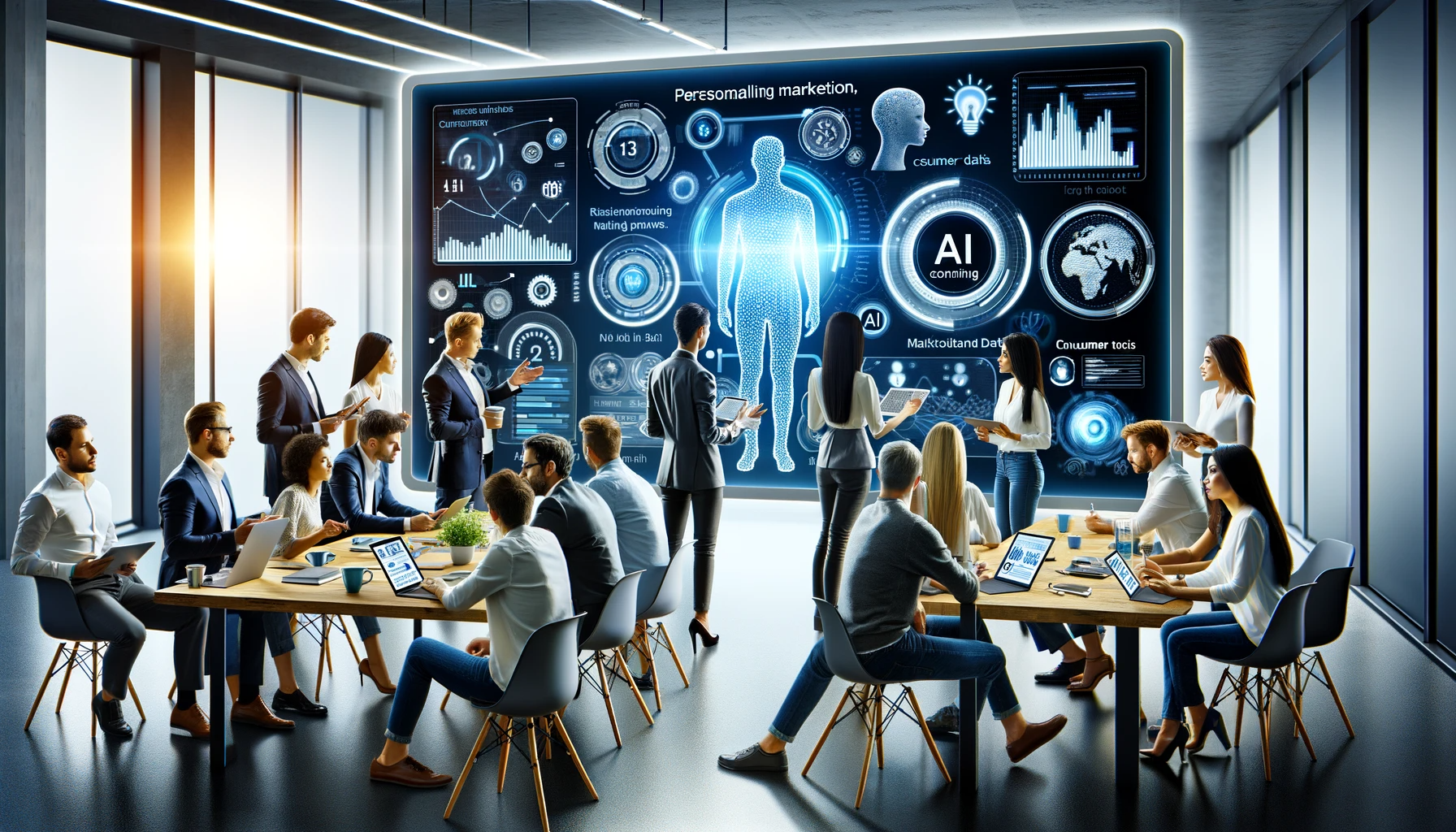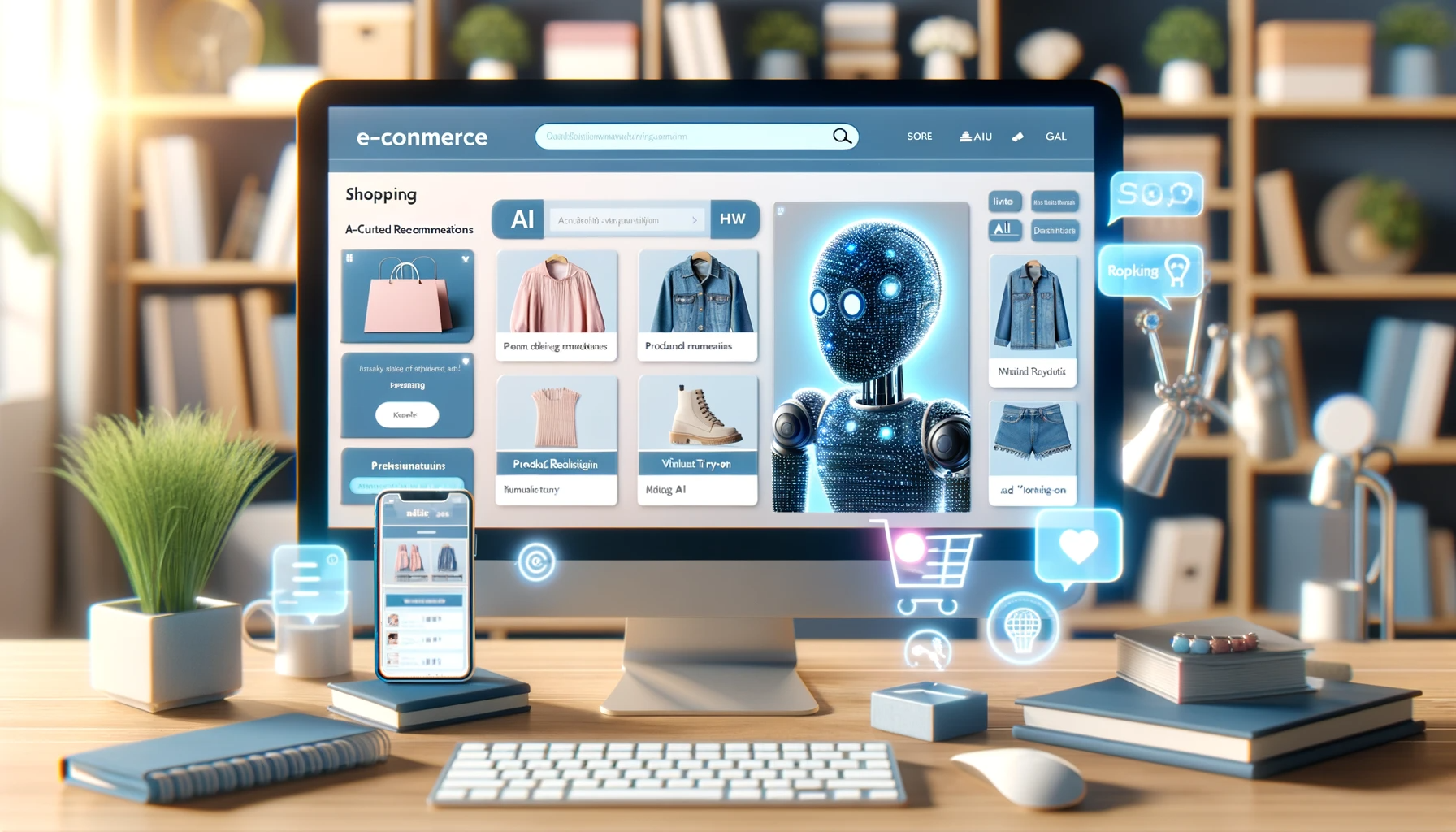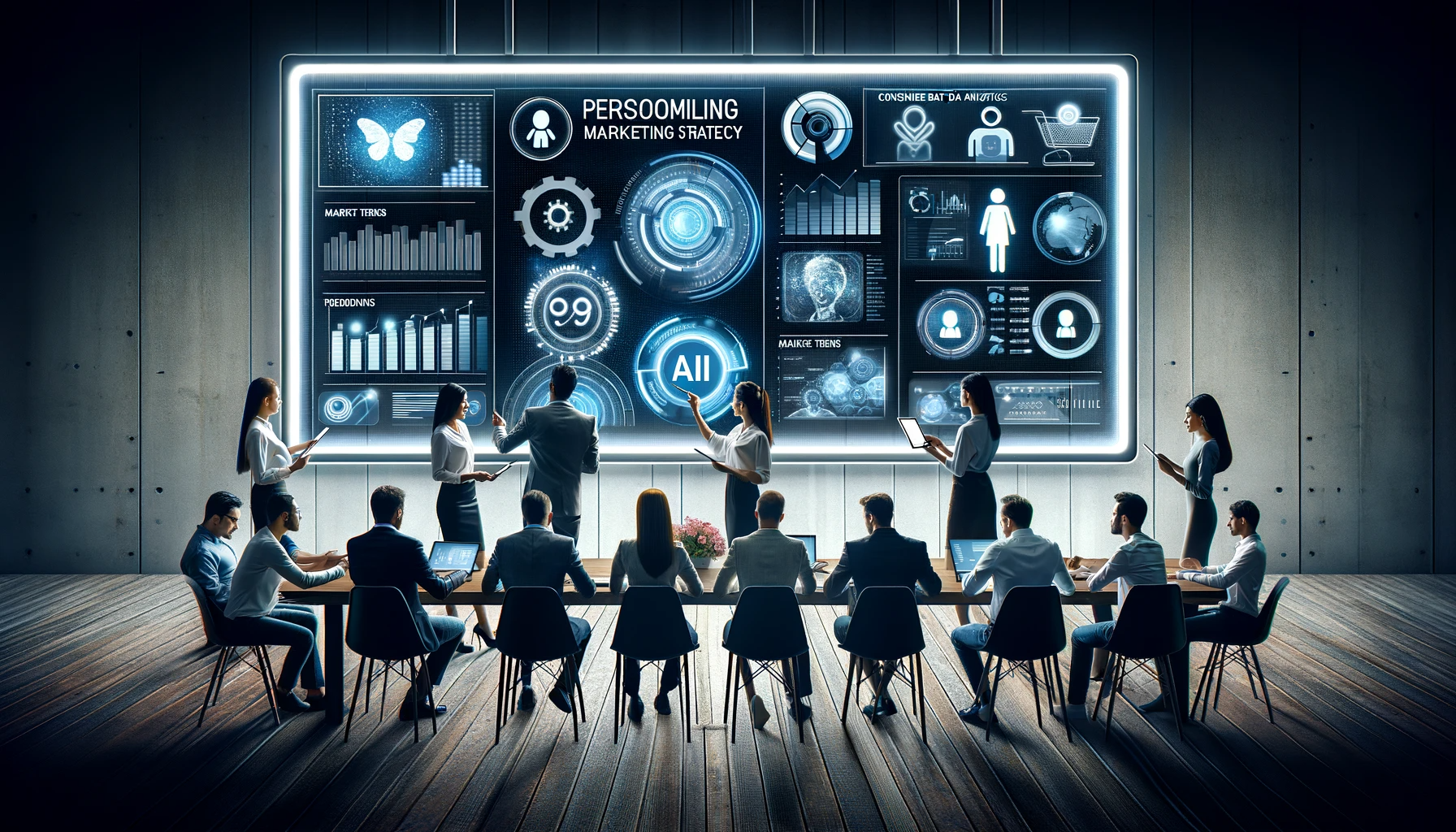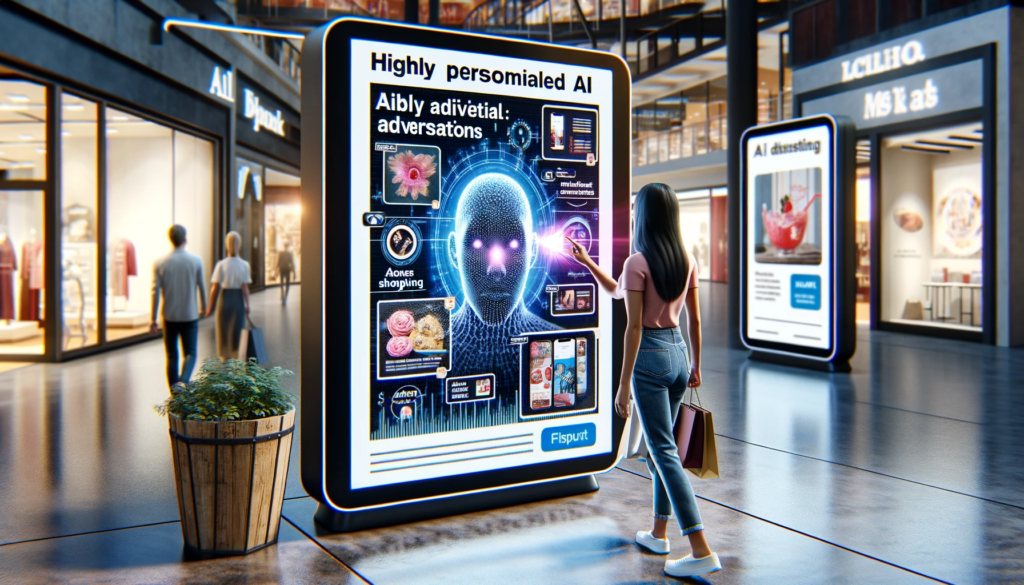Explore the game-changing impact of AI in marketing and discover how it’s reshaping the industry.
In an era where information and technology intertwine seamlessly, the role of Artificial Intelligence (AI) in reshaping marketing practices has become increasingly pronounced. As businesses navigate the ever-changing landscape of consumer preferences and market dynamics, AI has emerged as a powerful ally. This article embarks on a journey to explore the growing influence of AI in marketing, shedding light on its transformative capabilities in data analysis, consumer behavior prediction, and personalized advertising.
Traditionally, marketing relied on broad strokes and educated guesses to reach its target audience. However, with the advent of digital technologies and the proliferation of data, the marketing landscape has undergone a profound evolution. The challenges of reaching the right audience, delivering relevant messages, and measuring the impact of campaigns have prompted marketers to seek innovative solutions.

Section 1: The Evolution of Marketing in the Digital Age
Historical Perspective on Marketing and Its Traditional Methods
Marketing, as a practice, has existed for centuries in various forms. From ancient trade routes to the first print advertisements, it has continuously evolved. Traditional marketing primarily relied on word-of-mouth, print media, and broadcast advertising. Businesses targeted broad demographics rather than individual preferences.
Emergence of Digital Marketing and Data-Driven Approaches
The advent of the internet and digital technologies brought about a revolution in marketing. Digital marketing introduced methods like email marketing, search engine optimization (SEO), and social media advertising. With these tools, businesses gained access to vast amounts of data about consumer behavior and preferences.
The Need for Personalization and Efficiency in Modern Marketing
As the digital landscape expanded, consumers became inundated with marketing messages. Traditional one-size-fits-all approaches were no longer effective. The need for personalization and efficiency in marketing became evident. Businesses sought ways to deliver tailored messages to specific individuals, making their marketing efforts more effective and consumer-centric.
Section 2: The Role of AI in Marketing
Definition and Explanation of Artificial Intelligence (AI) in Marketing
Artificial Intelligence (AI) refers to the simulation of human intelligence in machines. In the context of marketing, AI systems can perform tasks like data analysis, pattern recognition, and decision-making. These capabilities enable AI to optimize marketing strategies and campaigns.
Subsets of AI Relevant to Marketing (Machine Learning, Natural Language Processing, etc.)
AI encompasses several subsets that are particularly relevant to marketing. Machine Learning (ML) allows computers to learn from data and make predictions or decisions. Natural Language Processing (NLP) enables machines to understand and generate human language, facilitating chatbots and content creation.
AI’s Transformative Impact on Various Industries and Its Application in Marketing
AI has disrupted industries ranging from healthcare to finance. In marketing, AI is a game-changer. It empowers businesses to analyze massive datasets, predict consumer behavior, and deliver personalized advertisements at scale. AI-driven tools and algorithms optimize ad targeting, content creation, and customer engagement.
This section sets the stage by providing a historical perspective on marketing’s evolution and introducing AI as the catalyst for the next phase of marketing innovation. In the following sections, we will delve deeper into how AI is driving data analysis, predicting consumer behavior, and revolutionizing personalized advertising in the modern marketing landscape.
Section 3: AI-Driven Data Analysis and Insights
The Significance of Data in Modern Marketing
In contemporary marketing, data is the lifeblood that fuels decision-making. Marketers rely on data to understand consumer preferences, track campaign performance, and optimize strategies. The sheer volume and complexity of data have necessitated AI’s involvement in data analysis.
How AI Enhances Data Collection, Processing, and Analysis
AI algorithms can process vast datasets rapidly, identifying patterns, trends, and correlations that human analysts might overlook. This capacity for real-time data analysis allows marketers to make informed decisions promptly.
Case Studies Showcasing AI-Driven Consumer Insights and Data-Driven Decision-Making
Real-world examples illustrate the power of AI in data analysis. Companies leveraging AI-driven analytics have gained valuable insights into customer behavior, leading to more effective marketing campaigns and improved ROI.
Section 4: Predicting Consumer Behavior with AI
The Importance of Understanding Consumer Behavior
Consumer behavior is the heart of marketing. To create compelling and effective campaigns, businesses must understand what motivates their customers’ actions and decisions.
AI-Powered Predictive Analytics for Consumer Behavior
AI excels at predictive analytics, using historical data to forecast future consumer behavior. Machine learning models can identify patterns and trends that indicate potential purchasing decisions, helping businesses tailor their marketing efforts accordingly.
Real-World Examples of AI-Driven Consumer Behavior Prediction
Numerous industries, from e-commerce to content recommendation platforms, have harnessed AI to predict consumer behavior. Case studies highlight how AI enables businesses to anticipate customer needs and preferences, resulting in higher conversion rates and customer satisfaction.
Section 5: Personalized Advertising and Customer Engagement
The Rise of Personalized Advertising in Digital Marketing
Personalization has become a cornerstone of effective digital marketing. Consumers expect advertisements and content tailored to their interests and needs. AI-driven personalization allows businesses to deliver precisely that.
How AI Enables Dynamic Content and Personalized Ad Targeting
AI algorithms analyze vast datasets, segment audiences, and create personalized content and advertisements. These dynamic campaigns adapt in real-time, ensuring that each customer receives relevant and engaging content.
5.3 Successful Cases of AI-Driven Personalized Advertising CampaignsBy personalizing their advertising, companies have achieved higher click-through rates, improved conversion rates, and increased customer loyalty. Successful campaigns demonstrate how AI-driven personalization leads to tangible business outcomes.
Section 6: Customer Journey Optimization
The Customer Journey and Its Significance in Marketing
Understanding the customer journey is vital for marketers. It involves mapping the various touchpoints a customer interacts with before making a purchase decision. Optimizing this journey can significantly impact conversion rates and customer satisfaction.
AI’s Role in Optimizing the Customer Journey
AI-powered tools analyze data from customer interactions and touchpoints to identify opportunities for improvement. Machine learning models can recommend personalized content, suggest optimal communication channels, and refine the overall customer experience.

Examples of AI-Driven Customer Journey Enhancements
Real-world examples showcase how businesses have used AI to optimize the customer journey. From e-commerce platforms offering personalized product recommendations to chatbots guiding customers through the purchase process, AI enhances every step of the journey.
These sections delve into the core aspects of AI’s impact on marketing. From data analysis and predicting consumer behavior to personalized advertising, customer engagement, and optimizing the customer journey, AI is fundamentally reshaping how businesses connect with their target audiences. In the following sections, we will explore the challenges and ethical considerations associated with AI in marketing and look ahead to future trends and innovations in this dynamic field.
Conclusion
The intersection of Artificial Intelligence (AI) and marketing has ushered in a new era of innovation, efficiency, and personalization. This article has journeyed through the transformative impact of AI on the marketing landscape, where data analysis, consumer behavior prediction, and personalized advertising have taken center stage.
Marketing, once reliant on broad strokes and educated guesses, has evolved into a data-driven, customer-centric discipline. The historical perspective highlighted how traditional marketing methods gave way to digital marketing’s data-rich environment, setting the stage for AI’s entrance.
AI has become the driving force behind modern marketing, offering unparalleled capabilities for data analysis and insights. Its ability to process massive datasets, identify patterns, and deliver real-time insights empowers marketers to make data-driven decisions swiftly. Real-world case studies have illustrated how AI-driven data analysis provides valuable consumer insights, improving campaign effectiveness and ROI.
Predicting consumer behavior is at the core of marketing success, and AI excels in this regard. By harnessing predictive analytics, businesses can anticipate consumer actions and tailor their marketing efforts accordingly. Across various industries, AI-driven consumer behavior prediction has yielded impressive results, fostering higher conversion rates and customer satisfaction.
Personalized advertising has become a hallmark of effective digital marketing, and AI is the engine behind it. AI’s dynamic content creation and personalized ad targeting deliver messages that resonate with individual consumers, leading to improved engagement and conversions. Successful campaigns have demonstrated how AI-driven personalization enhances business outcomes.
Optimizing the customer journey is another arena where AI shines. Understanding and enhancing each touchpoint in the customer’s path to purchase can significantly impact a business’s bottom line. AI-powered tools analyze customer interactions and provide recommendations, creating a seamless and personalized journey that fosters loyalty and satisfaction.
However, the integration of AI in marketing is not without its challenges. Ethical considerations regarding data privacy, algorithm biases, and transparency must be addressed to ensure responsible AI implementation. By embracing these challenges and ethical imperatives, marketers can build trust with consumers and maximize AI’s potential.
As we peer into the future, the marketing landscape promises continued innovation. Emerging trends such as AI-driven chatbots, voice search optimization, and augmented reality marketing are poised to shape the marketing landscape further. The potential for AI to revolutionize marketing extends beyond our current understanding, paving the way for a more dynamic and customer-focused industry.
In conclusion, AI has ushered in a new era of marketing, one marked by data-driven decision-making, predictive analytics, personalized advertising, and enhanced customer experiences. This transformative partnership between technology and marketing not only improves business outcomes but also empowers consumers with more relevant and engaging content. As we navigate this ever-evolving landscape, one thing remains clear: AI’s role in marketing will continue to redefine the way businesses connect with their audiences, forging a path toward more personalized and effective marketing strategies.
